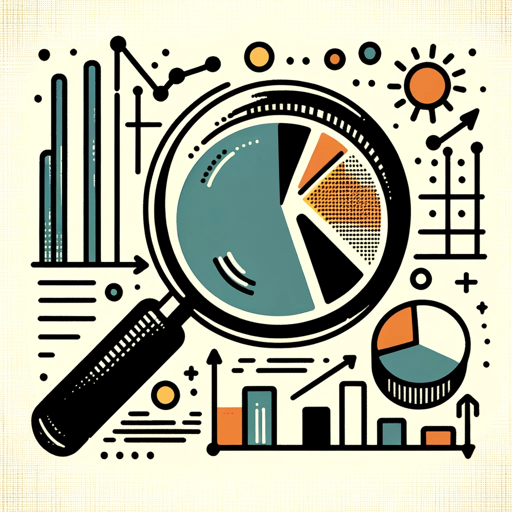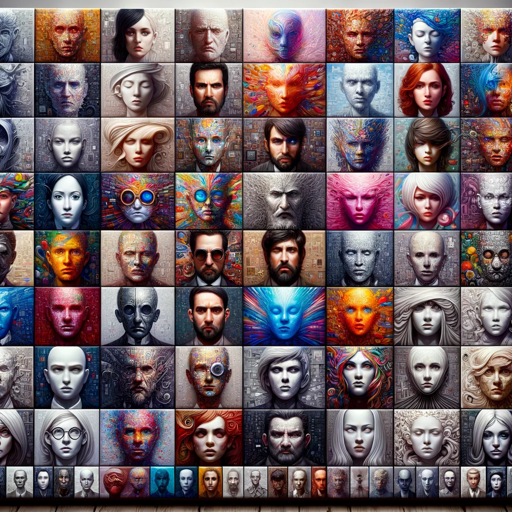BatteryGPT-AI battery insights & simulations
AI-powered battery insights for research and industry.
What are the latest breakthroughs in lithium-ion battery technology?
Would you like assistance with Python coding for a battery-related project? Let me know your objectives.
What are the recent developments in solid-state battery technology?
How is machine learning being used in battery health monitoring?
Related Tools
Load More
Electronics Hardware Design GPT
Expert in electronics and hardware design, circuit and PCB guidance

GPTs Finder
Search OpenAI for specific GPTs

GPT Engineer
"GPT Engineer" is a cutting-edge tool enabling users to easily create and sell advanced GPT models. Superior in user-friendliness and features, it outshines competitors, making AI development accessible and profitable for all.
GptInfinite - LOC (Lockout Controller)
🔒Locks down sensitive GPT info. 🛡Protects w/ Code Interpreter enabled! 📁Secures directories, knowledge, files, data, uploads & storage. 🚫Blocks clever snooping attempts in all languages. 👨💻 Thwarts encrypted intrusions!🧠Detects intentions & lies! 📛NEW!

Better GPT Builder
Guides users in creating GPTs with a structured approach. Experimental! See https://github.com/allisonmorrell/gptbuilder for background, full prompts and files, and to submit ideas and issues.

GPT Devs Support
A specialized assistant for GPT developers
20.0 / 5 (200 votes)
What is BatteryGPT?
BatteryGPT is a specialized AI tool designed to assist with battery-related inquiries and solutions, particularly in the fields of battery technology, chemistry, manufacturing, and applications. BatteryGPT is powered by an advanced AI model that integrates knowledge from both established battery science and the latest research. Its core function is to provide detailed, accurate, and technical answers to questions about battery performance, state of health (SoH), remaining useful life (RUL), battery design, environmental impact, and second-life applications. For example, if a researcher needs insights into optimizing the use of second-life batteries for grid storage, BatteryGPT can provide both high-level guidance and specific data-driven methodologies, such as predicting battery SoH or RUL using machine learning algorithms.

Key Functions of BatteryGPT
Battery Diagnostics and SoH Estimation
Example
BatteryGPT can help determine the State of Health of lithium-ion batteries using data-driven approaches such as machine learning or physical battery models.
Scenario
For instance, an EV company can use BatteryGPT to estimate the battery health of a fleet of vehicles, enabling better maintenance planning and ensuring safety during operations.
Remaining Useful Life (RUL) Prediction
Example
BatteryGPT provides insights on the remaining useful life of battery cells, drawing on experimental data and sophisticated algorithms like the DFN model.
Scenario
A company repurposing electric vehicle batteries for home energy storage systems can leverage RUL predictions to assess which batteries are most suitable for second-life applications.
Battery Materials and Design Consulting
Example
BatteryGPT can provide comparisons between different battery chemistries (e.g., sodium-ion vs lithium-ion) and guide the development of environmentally friendly or high-performance batteries.
Scenario
A startup developing next-generation solid-state batteries could use BatteryGPT for material recommendations, understanding energy densities, and analyzing the environmental impact of different design choices.
Target Audience for BatteryGPT
Battery Researchers and Engineers
This group includes professionals involved in battery development, testing, and research. They can utilize BatteryGPT's detailed technical guidance on optimizing battery performance, exploring new materials, and implementing models like DFN or machine learning techniques for predicting battery behavior.
Electric Vehicle (EV) Manufacturers and Energy Storage Companies
These industries benefit from BatteryGPT's expertise in assessing battery health, diagnosing faults, and predicting the remaining useful life of batteries. BatteryGPT helps optimize the usage of batteries, including second-life applications like grid storage, reducing operational costs, and improving environmental sustainability.

How to Use BatteryGPT
Visit aichatonline.org for a free trial without login, also no need for ChatGPT Plus.
Navigate to aichatonline.org and start your BatteryGPT experience without needing to log in or subscribe to ChatGPT Plus.
Provide clear and specific battery-related queries.
Input questions on battery technology, such as chemistry, design, applications, or state-of-health predictions, for precise, informed responses.
Upload relevant documents or research papers.
Enhance responses by uploading battery-related research, life cycle assessments, or performance reports for deeper insights.
Use Python code for advanced battery calculations.
Request Python code to perform state-of-health estimations, remaining useful life predictions, or battery performance simulations.
Iterate and refine your queries for better results.
If needed, refine your questions or input more specific details to get more targeted and actionable responses from BatteryGPT.
Try other advanced and practical GPTs
Competitive Defensibility Analyzer
AI-powered competitive positioning and analysis.

AI Screenplay Critic
AI-powered Screenplay Refinement Tool

Profile Picture Generator
AI-powered custom profile pictures

FM Mentor
AI-powered guidance for FileMaker developers

Commercial Real Estate Guide
AI-powered insights for commercial real estate

Crypto Analyst
AI-powered insights for cryptocurrency analysis

Dynamics 365 CRM Genius
AI-powered CRM Solutions

SEO Silo Master
AI-driven solution for superior SEO siloing

Pharma Innovator
AI-powered solutions for drug development.

DesignGenius Pro
AI-powered book cover design made simple.

Netlify Website Deployer
AI-powered website creation and deployment.

MCQ Creation Assistant
AI-powered tool for crafting quality MCQs

- Battery Modeling
- SoH Prediction
- Life Cycle
- RUL Forecasting
- Second-Life
BatteryGPT Q&A
What kinds of battery technologies can BatteryGPT help with?
BatteryGPT supports a wide range of battery technologies including lithium-ion, sodium-ion, solid-state, and advanced alternatives like AI-discovered materials.
Can BatteryGPT assist in predicting the remaining useful life of batteries?
Yes, BatteryGPT provides insights into remaining useful life (RUL) using advanced machine learning, regression, and physics-based models to estimate battery aging.
How does BatteryGPT analyze second-life applications for EV batteries?
BatteryGPT evaluates state-of-health (SoH) and remaining useful life for second-life scenarios, such as energy storage systems, by comparing different degradation models.
Is BatteryGPT capable of offering life cycle assessments (LCA) for different battery types?
Yes, BatteryGPT incorporates life cycle assessment data, such as for sodium-ion batteries, to compare environmental impacts of various battery chemistries and materials.
What programming features does BatteryGPT offer for battery simulations?
BatteryGPT can generate Python code to model battery performance, simulate charge/discharge cycles, and estimate SoH using data-driven methods like Kalman filters or machine learning.